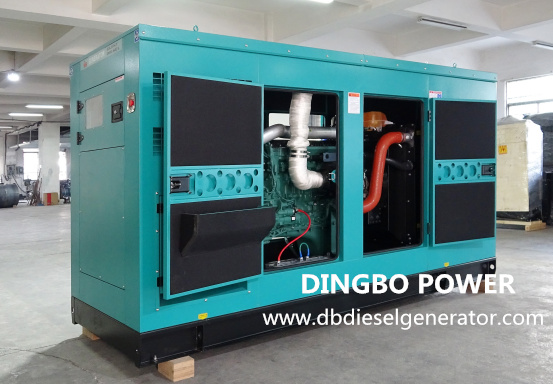An emergency generator serves as a secondary source of electrical power whenever the regular power supply fails during power outages or natural disasters. It plays an important role in many fire and life safety systems. When it comes to locating a generator, safety comes first. In this article, Dingbo Power will introduce the emergency generator location requirements that you need to know.
First of all, it's necessary to have a basic understanding of emergency generators. Generally, an emergency generator is a combination of an internal combustion engine and a generator. The engine drives the emergency generator and generators with diesel or gasoline (combustion engine) are one of the most common backup power units. The generator converts the mechanical energy of an engine into electrical energy. With the features of quick start-up, stability and reliability and so on, emergency generators are widely used in various occasions where backup power is needed.
Where Should Emergency Generators Be Placed?
To maximize the efficiency of the generator, you have to select a proper installation location where factors such as ventilation, temperature, surrounding spaceand air cleanliness should be considered. The generators should be protected from floods, fire, vandalism and other environmental hazards. You can put the generator in the building's exterior, interior, above grade or even on the roof.

When installed outdoors, you should choose a relatively stable and flat ground surface for the generators to avoid damage caused by excessive tilt or unstable shaking during installation. Meanwhile, there should be enough breathing room for intake and discharge ventilation to prevent the emergency generator from overheating when it runs for a long time. During the rainy season or in a humid environment, the generator should be located in a suitable enclosure and installed in a rain-proof place, while waterproof measures should be strengthened so as not to affect the service life of generator. Ventilation is also extremely important in an environment with high heat and certain measures should be taken to help manage the recirculation to prevent the engine from overheating. Additionally, emergency generators are usually installed near buildings with a distance of not less than twice the height of the building walls to prevent damage to the buildings in the event of fire or mechanical failure.
If you install the emergency backup generator within building interior spaces, select a well-ventilated area for the generator and provide enough space to walk around the enclosure doors. Usually, the room you put the generator must have a two-hour fire resistance rating. Ensure that there is a certain safe distance between the generator and electrical equipment, furniture, etc. This can help prevent accidents such as impact or overloading during operation. Also, consider if there are any facilities that may not tolerate the vibrations caused by the motor of the generator.
Keep in mind that whether located outdoors or indoors, the rooms or enclosures containing emergency generators shall be designed to minimize the possibility of damage to the Emergency Power Supply System equipment and permit sufficient room for access for inspection, repair, maintenance, cleaning or replacement.
Other Factors to Be Considered
Emergency generators must be installed on solid foundations which shall be raised at least 6 inches above the floor or grade level and permit ease of maintenance. The surface should be flat and can withstand heavy loads, which can ensure the safety and stable operation of generators.
The location of generator sets should be as close to the utilities as possible, which can reduce line losses and cut down the cost of materials and installation. Meanwhile, it can also prevent disturbing lines and improve the quality of power supply, thus extending the service life of electrical equipment. In addition, it is also crucial to consider energy source and plan a path for refueling.
When selecting a location for the emergency generator, noise also needs to be considered. Typically, a diesel generator set without any noise reduction can approach 100 dBA, which can't achieve the required noise levels. If you want to buy a generator set to backup your home and family, Dingbo Power suggest that you choose a silent diesel generator set which can minimize noise levels while ensuring efficient power generation.
Conclusion
All in all, when selecting a location for your emergency generator, you need to consider various factor. Besides location, you also need to consider the exhaust system, cooling system, vibration, protection and noise of the generator set. The location requirements mentioned above can affect the performance of your emergency power supply system. If you are looking for a reliable backup power generator but not sure which can best suit your needs, contact us today and our experts will help you find the perfect emergency generator for your needs.
Comments
Post a Comment